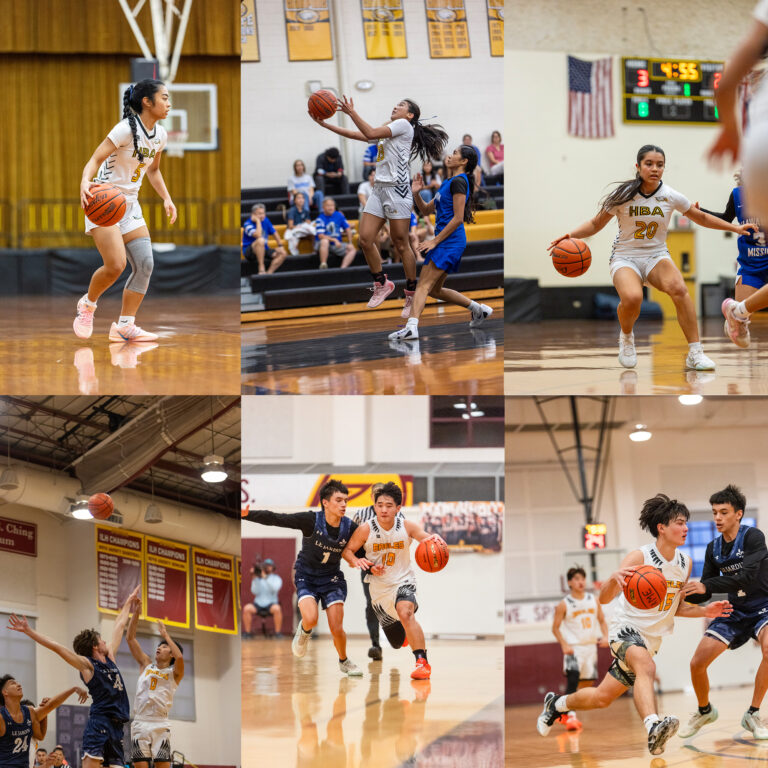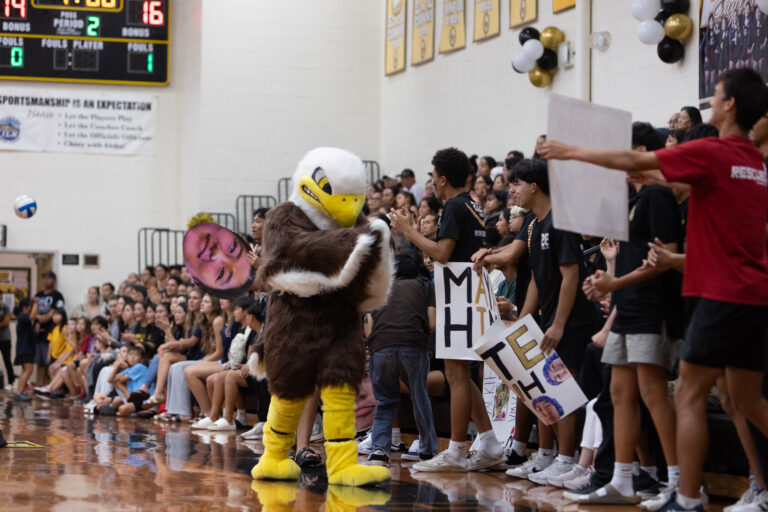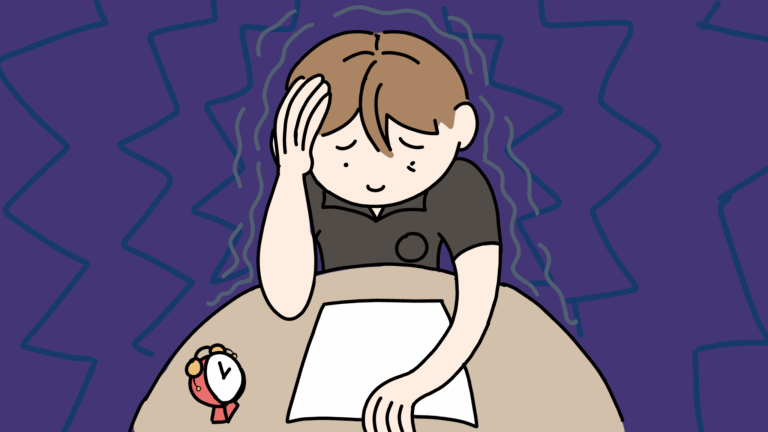The power of artificial intelligence to take on tasks previously completed by humans alone has sparked a lot of conversation and heated debates. From generating images based on text prompts to analyzing large amounts of data in a split second to generate detailed analyses, AI is used for various purposes across many fields, such as healthcare, business, research, education, and entertainment. As AI-use becomes more prevalent, we gathered HBA’s students and faculty’s perspective on the impact of AI, both good and bad.
At HBA, students are not allowed to use AI to complete their assignments. According to the high school student handbook, “using AI generative tools (e.g., ChatGPT) to complete assignments” is classified under academic dishonesty. In classes, some teachers have explained that AI-use will hinder essential learning skills like writing and critical thinking. For example, the English 10 first-day handout states: “We care that you learn, and so we expect you to do good work and to do it honestly…Our belief and expectation is that students manage their learning with integrity.”
However, some HBA students feel that AI can be helpful as long as it’s not used to do the work for students. Keira Chang, a sophomore, said, “I find that generating study material in the form of practice tests or flash cards using AI is generally conducive to building good study habits.” Similarly, Vanessa He, a senior added, “I use AI to study by asking it to make quizzes for me or asking it to explain a concept to me as if I was 5 years-old.” Sydney Moore, a junior, also finds that “AI can be a good teacher outside of school when you need additional help or are just a little bit stuck because it often lists the steps to problems and explains the ‘why’ so you can learn better.”
Not all teachers are completely against the use of AI, provided it is used legitimately. Robert Weismantel, high school social studies teacher, doesn’t see a problem with students using AI to generate practice tests and as a study assistant. Weismantel himself often utilizes the AI features on Peardeck Assessments, which he believes is a better tool than Google Forms for practice quizzes. He’s also found that it has also been a great help with lesson planning. He explained, “In Mock Trial, because I’m not a lawyer and I don’t have any background in it, I use AI to get explanations of objections as well as examples and then even create sample conversations to practice with. AI gives me more than a Google search. It allows me to ask follow up questions like ‘what do you mean by this?’ or ‘wait, how about this?’ It allows me to brainstorm my ideas as if I’m talking to someone else.” Anne Menks, Chemistry teacher, observed that there are certain career fields that need AI. For instance, she said, “Many things you end up doing in a job require you to document and communicate information and AI can speed this process up so you can be more productive. The military is now requiring certain jobs to become very familiar with AI, so that they can quickly communicate the work they are doing and speed up each task that’s required of them.”
According to HBA’s Technology Committee member Sean Malinger, who is also the chair of the visual and performance arts department, the school recently shared an interim AI policy with HBA staff and faculty to provide guidance on how AI is to be used at school. This policy has not yet been officially shared with students and families as AI-use for students is currently still not allowed at all for school assignments. Explaining why some forms of AI-use may be prohibited, the policy states: “An HBA education is about knowing and being known, thus if the use of AI or other technologies would cause students to be ill-equipped spiritually, intellectually, physically, socially, or emotionally, or would subvert their formation and lead to a lack of humility, curiosity, love, and commitment, or if these tools are used to dishonor God, deceive, or cause harm to humanity and the common good, the use of these tools is both unethical and prohibited. AI and similar tools must not be used to replace knowledge and skill acquisition, the formation process, wisdom, decision making, responsibility, creativity or human relationships.”
Using an example from his department’s perspective, Malinger explained, “If a photographer is learning the art and skill of photography, ‘the intended purpose of the creation’ is learning and being able to do the task. Photographers are storytellers, and in one frame they seek to tell a small part of a larger story. Using AI to take over ‘the intended purpose of the creation’ is not giving a photographer more freedom, but taking away freedom, because a photographer would not have more skill but less skill and less autonomy.” On the other hand, Malinger also sees ways that AI can be helpful in his field. “I do not think that photographers should always use manual focus. AI assisted autofocus can be very good and often faster than what a person can achieve, though a photographer should also have the skill and knowledge to know when and how to use AI assisted focus and when to turn it off,” he added.
Outside of school work, AI-generated videos and other media content, are often seen on social media feeds. Meta, the company that owns Instagram and Facebook, has stated that “[they] will begin adding ‘AI info’ labels to a wider range of video, audio and content when we detect industry standard AI indicators or when people disclose that they’re uploading AI-generated content.” However, not all AI-generated content is marked and labeled as such. As a result, some may find it hard to discern what is real or not. Katana Viloria, a freshman, shared her experience, saying, “I see many AI videos online and most of the time I can tell they are fake, but when I think they are a little real, it gets me feeling kind of weird because in the future I don’t want to have to think about what’s real and what’s not.” Classmate Demi Chae has also mistaken AI-generated content for something real. She said, “While I was scrolling on my phone, a photo popped up of the original Harry Potter cast making funny faces while they were filming. But, when I looked at the comments for the photo, I’d learned that it was made with AI even though it looked so realistic.”
According to a November 2025 article on The Guardian, an AI-generated country song made it into Spotify’s “Viral 50” list for the U.S. and was also on Billboard’s “Country Digital Song Sales” chart. Unless listeners make the effort to look up the artist or band, it’s no longer easy to discern if a singer is actually an AI-generated voice. Chang shared her experience with music. “I once heard a song on social media going viral, and, curious as to who wrote it, I dove deeper only to discover it was AI-generated. For me, this was a first because I typically encounter videos and pictures, so I have a better discernment between real and fake. The song caught me off-guard, and it really goes to show that AI is developing in unexpected ways,” she said.
Malinger hopes that students and faculty alike will consider the deeper implications of AI-use if they choose to use it. He wrote, “What is God’s ‘intended purpose of the creation’ of us? If part of God’s “intended purpose of the creation” of us is about us being made in the image of God, and our knowing and doing, and to point to Him Whose image we bear, then we should also be careful not to miss the point. An example of this is seen when the bible describes God as compassionate, and it also says that we are to be compassionate (see Ephesians 4:32 & 1 Peter 3:8.) If we off-load part of God’s ‘intended purpose of the creation’ of us (in this case, being compassionate) and give the job to an AI-powered healthcare robot or GPT therapist, we are not fulfilling God’s ‘intended purpose of the creation’ of us. If we forgo being compassionate, we and others feel the effects. We would not be doing something we are designed to do, others would miss out experiencing and seeing us live it out, and God would not get the glory He rightly deserves. Jesus said, as recorded in Matthew 5:16 ” Let your light so shine before men, that they may see your good works, and glorify your Father which is in heaven.” When we fulfill God’s “intended purpose of the creation” of us, we are fulfilled, others are blessed, and God gets the glory he rightly deserves.”






